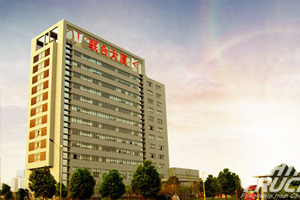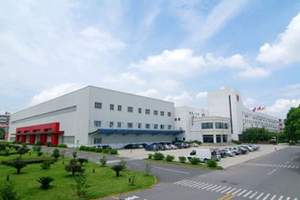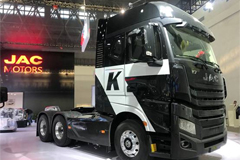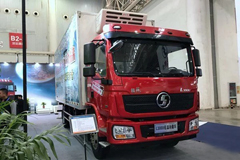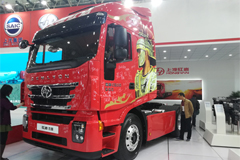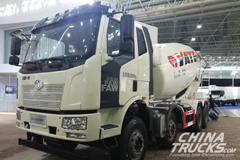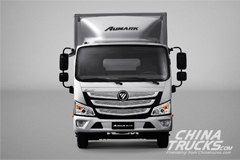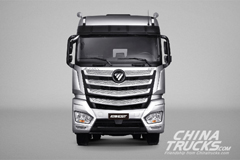IAA 2018: Hyundai Signs MoU for Rolling out Fuel Cell Electric Trucks
Hyundai Motor Company (NASDAQ: HYUD) signed a Memorandum of Understanding (MOU) with Swiss hydrogen technology company H2 Energy (H2E) at the IAA Commercial Vehicles 2018 in Hannover. The company is set to work on manufacturing 1,000 heavy-duty fuel cell electric trucks to the Swiss commercial vehicle market, between 2019 and 2023.
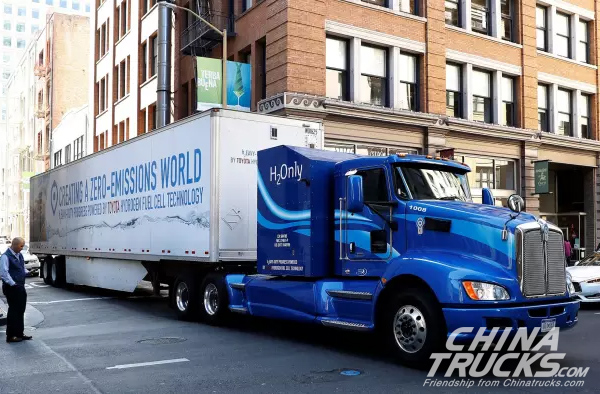
It comes at the wake of Hyundai recently unveiling a render image first look of its futuristic truck that runs with a fuel cell powertrain. This truck is considered to be a milestone in Hyundai’s relentless pursuit of the hydrogen fuel cell technology.
“Hyundai Motor has continuously made successful steps to shift from combustion engine vehicles to zero-emission vehicles over the last three years. We are now expanding our eco-friendly vehicle lineup in the medium and heavy-duty segment,” said Maik Ziegler, director of commercial vehicle R&D strategy group at Hyundai. “This supports the sustainable growth of the company and is the opportunity to enter the global market with our superior eco-friendly fuel cell technology.”
True to this, Hyundai has been a member of the Hydrogen Council, a global initiative that creates an ambiance for industry stakeholders to work on transitioning from conventional energy sources to hydrogen fuel cells. “This is a global initiative to grow the environmentally friendly hydrogen business. Hyundai serves as a co-chair since 2017, and we are cooperating with many governments and different companies with the goal of market expansion of hydrogen and eco-friendly vehicles on a global scale,” said Ziegler.
The fuel cell electric truck that Hyundai is developing now features two 190 kW hydrogen fuel cell systems coupled in parallel, and has a range of around 250 miles. That being said, there are many distinct advantages to opting for a hydrogen fuel cell over a lithium-ion battery cell, especially in the case of heavy commercial vehicles like trucks. For one, fuel cells are lighter and occupy far lesser space than its battery counterpart, providing vehicles with more space and also a higher range.
Charging of electric vehicles has been long cited as an issue that prevents the phasing out of diesel engines, as batteries take a minimum of six hours to be fully charged, leading to long waiting times at charging points. Fuel cells negate this, as it takes only about five minutes for a full charge, a time frame that isn’t out of place at gas stations. And like with battery powered vehicles, hydrogen fuel cells are zero emission as well, with significantly lesser noise levels compared to a combustion engine.
Another obvious advantage of fuel cells is it dispels the need for building out expensive grid infrastructure. Electricity used for charging battery cells are usually coming in from thermal power plants or renewable energy sources like wind and solar power plants. The issue with the latter is that these energy sources are inconsistent, with electricity generated from them coming in peaks and ebbs. To handle the fluctuation, governments would have the added responsibility to build grids with oversized capacities, making it a costly affair.
Hydrogen fuel cells could be a way out, as it allows the possibility of converting electricity into hydrogen, storing and eventually re-electrifying it when needed. This makes the availability of electricity more flexible, and offers a sustainable and feasible alternative for powering heavy-duty commercial vehicles.
Hyundai has already introduced fuel cell powered buses in South Korea, during the PyeongChang Olympics and is now in the midst of a pilot run across Korea’s major cities, with plans for mass production by 2020. The company has already launched taxis and car-sharing services powered by fuel cells, which now operate across public roads in Ulsan and Gwangju. (www.chinatrucks.com)
Views:0
- Hyundai and IVECO Present the First Fuel Cell Large Van at IAA 2022-09-20
- Hyundai Motor and Iveco Group Sign MOU to Explore Future Collaboration 2022-03-09
- Hyundai Reveals World’s First Hydrogen Fuel Cell Heavy-duty Truck at CIIE 2020-11-06
- Hyundai Targets 15% of European Hydrogen Truck Market by 2030 2020-07-24
- Hyundai Wins 2020 Truck Innovation Award 2019-12-19
- Hyundai Showcases NEPTUNE Fuel Cell Truck Concept at CIIE 2019-11-14
- Hyundai Motor Company and Cummins to Collaborate on Hydrogen Fuel Cell Tech 2019-09-29
- Sichuan Hyundai Launches New Version of Mighty Light Truck 2019-08-19
- WABCO Signs Deal with Hyundai to Supply Advanced Techs for New Medium Trucks 2018-11-12
- Hyundai Motor Cuts Truck Production to Cope with Falling Korea's Demand 2018-11-01
Submit Your Requirements, We Are Always At Your Service.
- World’s First All-electric Scania Car Transporter Goes into Service
- China’s First Mining Specialized Remote Sensing Satellite Launched
- SINOTRUK Delivers Full Year 2022 Results, Heavy Truck Sales Down 52.50%
- FOTON and Cummins Team up to Build a New Engine Plant in Thailand
- SANY Awarded as 2022 Forbes China TOP 50 Sustainable DEV Industrial Enterprises
- Daimler Trucks and Buses Signs Deal with XCMG Fire Fighting
- FAW Jiefang Sichuan Branch Was Officially Established
- Bus & Truck Expo Set to be Held in May 2023
- Yutong, SCG Signed MoU for Green Mining in Thailand
- CAT Displays Its First Battery Electric Large Mining Truck
- Half Year Review of Commercial Vehicle Sales
- China Exported 63,000 Trucks in May, Up 33% YoY
- Top 10 Best-selling Battery-swapping Heavy Trucks in China in April
- China Exported 158,000 Trucks in Q1, Up 41% YoY
- China’s Truck Exports Grew by 43.8% YoY to 46600 Units in Feb., 2023
- China’s Heavy Truck Sales Rising 29% YOY to 77200 in Feb
- China Exports 567,000 Trucks in 2022, Hitting a New High in a Decade
- China’s Pickup Exports Jumped 65% YOY in 2022
- China's Truck Exports Grew by 42% YOY to 53,000 Units in November
- Heavy Truck Sales in China Fell by 9% YoY to 46000 Units in Nov.


